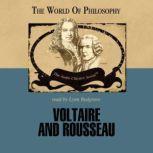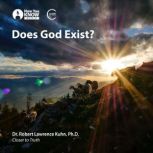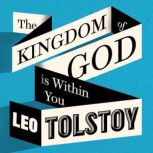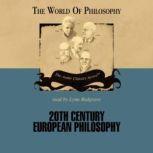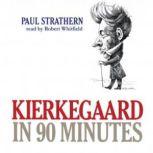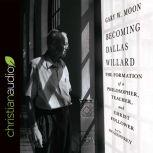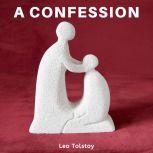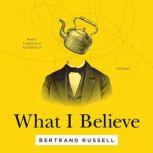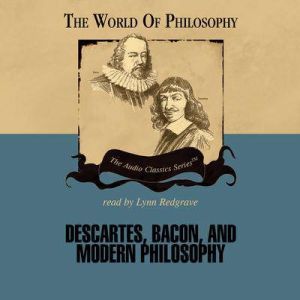
Details
Descartes, Bacon and Modern Philosophy
Author: Professor Jeffrey Tlumak
Series: The World of Philosophy Series
Narrator: Lynn Redgrave
Unabridged: 2 hr 58 min
Format: Digital Audiobook
Publisher: Blackstone Audiobooks
Published: 01/08/2006
Genre: Philosophy - Religious
Synopsis
Rene' Descartes (15961650), the father of modern rationalism, abandoned traditional paths to knowledge and developed a new method of seeking truth. Descartes doubted everything to eliminate preconceptions, and to test all candidates for true knowledge but he discovered he could not doubt his own existence as a conscious being. Through rigorous selfexamination, he offered an account of the nature and reality of mind, body, God, and their interconnections. He aimed to affirm human individuality, freedom, and spirituality in a way that was consistent with his revolutionary, unified, mathematical approach to science. Descartes argued that philosophies based on sense experience are unreliable; he said that the human soul and God can and must be known before we know anything about the physical world. He noted that our capacity for error results from the gift of free will but he argued that by using his method for seeking knowledge we can infallibly know the timeless nature of things. Descartes said that humans are not merely physical beings; each of us is a composite, in which an unthinking, spatially extended, physical body is combined with a free, conscious, nonspatial mind or soul (which is the true self). The body and soul intimately interact, yet each can exist separately so it's metaphysically possible that the soul may survive the death of the body. Francis Bacon (15611626) pioneered the other major earlymodern philosophical method known as empiricism; unlike Descartes, Bacon based all genuine knowledge on sense experience. He said the growth of knowledge is inhibited by faulty assumptions, habits of mind and methods of investigation, and he developed experimental procedures to enable otherwise limited human minds to interpret nature correctly.
by Peter Walker
When we enter through the Gate of Jesus – by repentance and faith - we enter into his eternal kingdom. In that moment, we become citizens of heaven. Yes, we still find ourselves here on earth, but everything has changed. Earth is no longer our...
Published: 05/05/2022
by Professor Charles Sherover
Voltaire and Rousseau offered opposing viewpoints on the major intellectual movement of their time: the Enlightenment. Like most Enlightenment thinkers, Voltaire repudiated tradition and history, embracing reform based on individualism and intellect...
Published: 04/09/2006
by Robert L. Kuhn
Does God exist? How do you justify your belief or unbelief to others? A delicate matter, you rarely have the occasion to fully explore these questions in daily life. Now, this special series invites you to join some of the world’s leading thin...
Published: 03/22/2019
by Leo Tolstoy
Banned in Russia, Tolstoy's The Kingdom of God Is Within You was deemed a threat to church and state. The culmination of a lifetime's thought, it espouses a commitment to Jesus's message of turning the other cheek. In a bold and original treatise, T...
Published: 10/13/2022
by Professor Ed Casey
Twentiethcentury European philosophy has grown out of two movements: existentialism (emphasizing the everyday turmoil of living) and phenomenology (seeking the essential, indispensable core of things grasped by pure consciousness). These movements h...
Published: 04/14/2006
by Paul Strathern
Kierkegaard wasnt really a philosopher in the academic sense. Yet he produced what many people expect of philosophy. He didnt write about the world, he wrote about life, about how we live and how we choose to live. His subject was the individual and...
Published: 06/25/2005
by Gary W. Moon
Dallas Willard was a personal mentor and inspiration to hundreds of pastors, philosophers, and average churchgoers. His presence and ideas rippled through the lives of many prominent leaders and authors, such as John Ortberg, Richard Foster, James B...
Published: 03/27/2018
by Leo Tolstoy
Leo Tolstoy's "A Confession" is a brutally sincere reflection on life, morality, and the nature of faith. Tolstoy describes in great detail the process by which he lost his faith in established Christian churches, the meaninglessness of wealth and f...
Published: 04/10/2020
by Bertrand Russell
Remarkably relevant, beautifully written, and filled with wit and wisdom, these three essays by Bertrand Russell allow the listener to test the concepts of the good life, morality, the existence of God, Christianity, and human nature. "What I Believ...
Published: 01/01/1995


